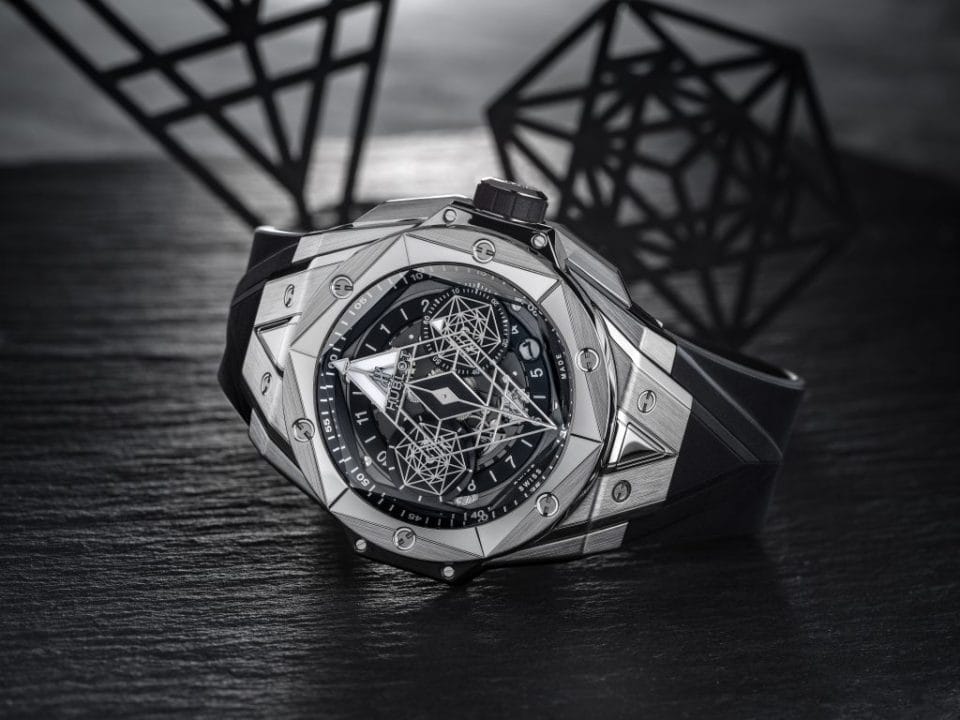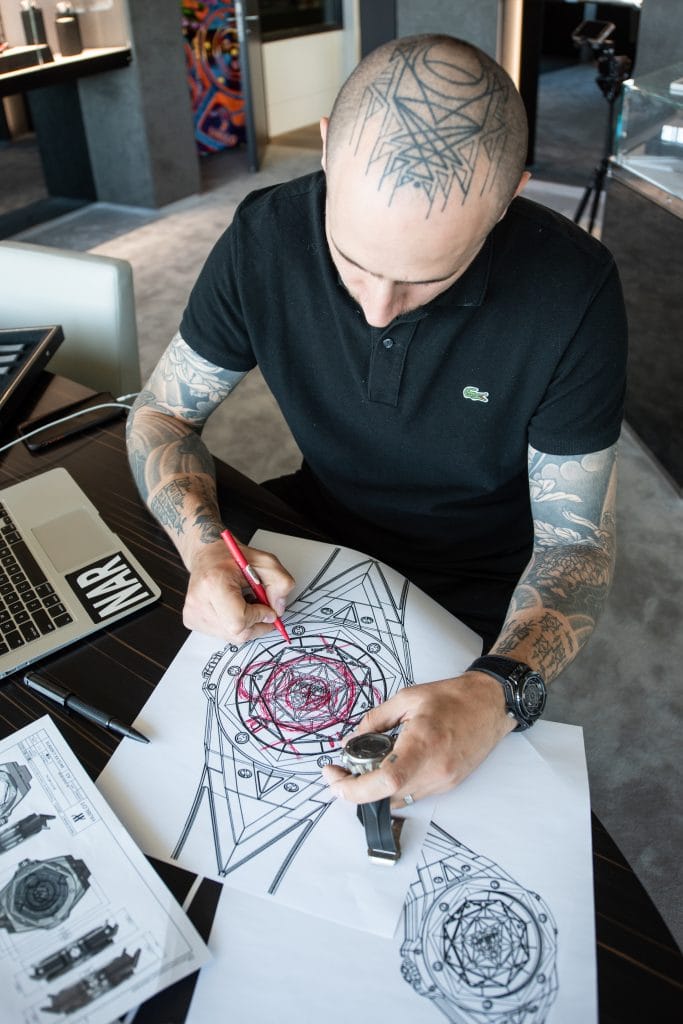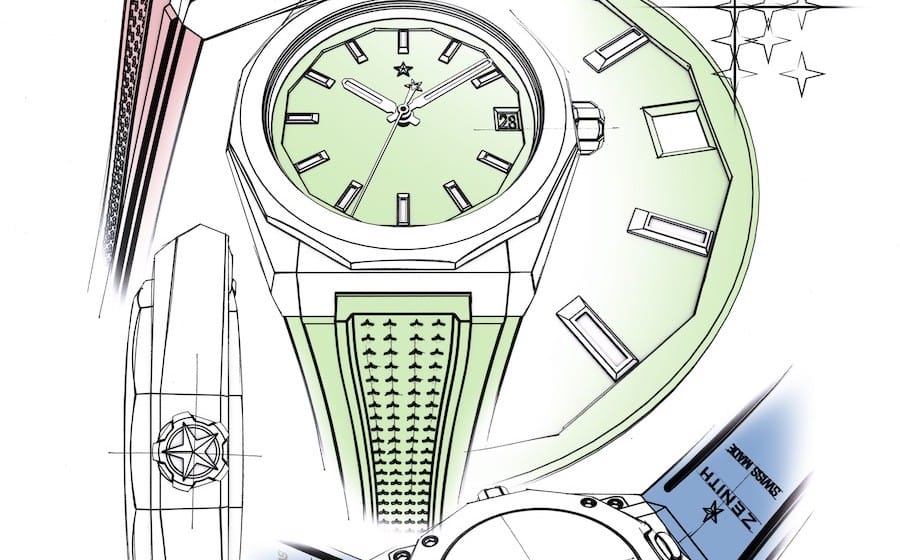How has the Big Bang Sang Bleu II evolved from the original?
Maxime Plescia-Büchi: I had a checklist of things to do during the design process of the Big Bang Sang Bleu, and the second watch builds on that. I always work by building up rather than starting over, so the watches are not meant to replace each other but set the basis for a line. Obviously we have added a complication, which was exciting; I fantasised about having the main hands be the chrono hands so you could see it move more, but sadly it was not technically possible. I was also inspired by aerodynamics and extreme sports as well as prosthetics and body extension, the latter of which are not exactly common in the watch world. But I don’t see my interests as segmented, and finding that connection is what I and Sang Bleu have always been about.
You also work a lot with geometry.
Geometry is a visual expression of math, and math to me is the quintessential nature of how the human brain works and how we perceive the world. It is this universal quality that is appealing, especially in a world where everything is constantly about individuality. Individuality is overrated – what is interesting is not what makes us different, but what makes us the same. I travel and meet with all kinds of people, and at the end of the day what I’m interested in is what I have in common with them.

If the Big Bang Sang Bleu was about telling people who you are, what do you want to say with the Big Bang Sang Bleu II?
This might be the Swiss in me but I never wanted [the watch] to be about me, even as a means to an end. That said, I was extremely pleased to see that people who had no clue were interested in the first design, which is the best possible compliment. [The second watch] is about pushing the envelop in terms of what I find interesting in the world. I’ve come across jokes that compare it to something from a Transformers film — so be it! If you look at hugely successful movies like Transformers, the reason why it looks the way it does is because it is in the zeitgeist. That is how people are looking at things, and if you take this watch with contemporary architecture in the background it is going to blend right in. I’m not interested in producing a watch that looks like it’s from the 1950s, even if I might appreciate it; I want to produce something that belongs today and tomorrow.
You did a live tattoo session with DJ Myrne, our first local friend of Hublot. In your opinion, how much should tattoos be a public versus private experience?
What’s happening is tattoos are moving towards becoming fully accepted and democratised (if not already), and with that comes diversity. [The act of] tattooing no longer defines the experience; rather, people are adapting tattooing to the experience they want. Tattooing, like any other technique or practice, has simply become a tool of expression, whether in terms of individuality, body or art; it can be anything people want it to be. I do think there is something quite captivating in the performance of tattooing, so I understand if people want to show it; they are creating something permanent in a world that is quick and hard to grasp, and that act of creation is reassuring and mesmerising.

After all these years, what do tattoos and tattooing mean to you?
I don’t tattoo much anymore, so it’s less about what I do today than what happened what I first started tattooing. There isn’t one aspect of tattooing that was special to me; it’s the opposite, in fact, as it brought together the widest range of interests I had. There was also this transgressive quality similar to graffiti and skateboarding that I enjoyed. I could never challenge codes and conventions in my other professions – my experience with graphic design and art direction was so unbelievably conformist and politically correct, I was miserable! I had a rough couple of years after college, but I was already getting tattooed back then and kept going back to the the idea of being a tattooist. It seemed obvious, but it was a revelation when it finally clicked, and on top of that there was a sense of community and belonging where people stuck together in spite of their differences in the tattoo world which I did not feel elsewhere.






